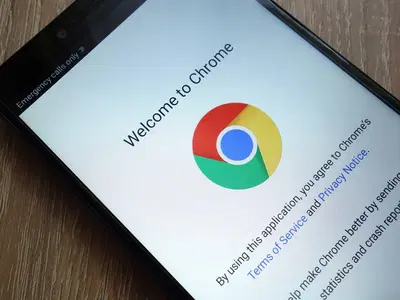Google has achieved a major win in its long-running legal fight with the U.S. government. A federal judge has rejected demands that the company sell its Chrome browser.
However, the court introduced new rules to limit Google’s power in online search and prevent unfair competition.
Judge Amit Mehta made the ruling nearly a year after deciding that Google had illegally maintained its search monopoly.
The company had signed multibillion-dollar deals with Apple, Samsung, and other device makers to ensure Google stayed as the default search engine on their devices.
The Justice Department argued that Chrome, used by billions of people and handling about a third of all Google searches, was key to the company’s dominance. They wanted it spun off.
Judge Mehta disagreed, saying breaking up Chrome would be “messy and risky” and that the demand went too far.
Instead, the judge set several new measures. Google must share some of its search data and user interaction information with qualified competitors to create fair competition.
The company cannot use exclusive contracts to control emerging AI search technologies, similar to how it dominated traditional search. A technical oversight committee will monitor Google’s compliance, starting in 60 days.
This ruling is one of the most important antitrust decisions in decades. While it does not break up Google as some critics wanted, it could change how the company operates and influence the future of AI-powered search.
Lee-Anne Mulholland, Google’s VP of regulatory affairs, said the decision reflects the growing role of AI in search. She noted that competition is now stronger, and people can choose from many services to find information.
She also warned that sharing data with competitors could create “serious concerns” about protecting user privacy.
The U.S. Justice Department called the new rules “significant” but said it is reviewing the decision to decide whether to pursue additional actions.
This case is part of a wider effort to regulate Big Tech. Google is facing another lawsuit in Virginia over its ad technology,
which a judge already found to be an illegal monopoly. Other tech giants, including Meta, Apple, and Amazon, also have ongoing federal antitrust cases.
The original case against Google started in 2020 under the Trump administration and continued under Biden. It is part of a bipartisan effort to reduce the power of major tech companies in Silicon Valley.
Investors responded quickly to the decision. Alphabet’s shares jumped 7.5% after hours, while Apple rose over 3%.
Analysts called the ruling a “home run” for Google and a “huge win” for Apple, which benefits from Google’s default search payments on iPhones.
By allowing Google to keep Chrome but imposing restrictions, the ruling marks a new era of regulation. It will shape how Google competes in the fast-changing AI and search industries.







